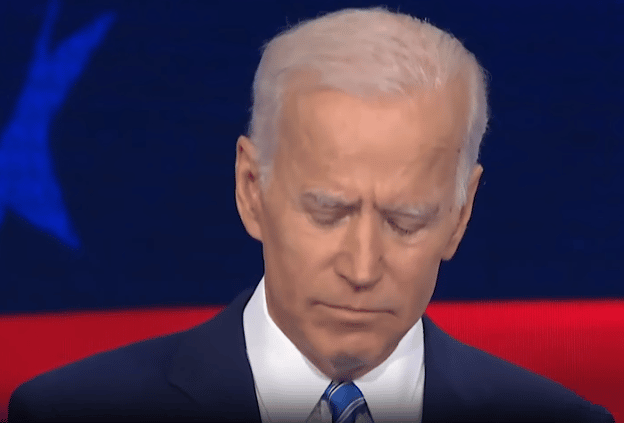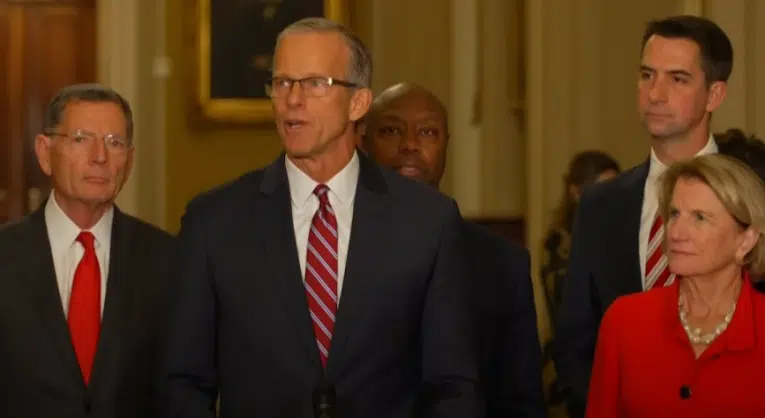
Almost two years after the botched U.S. withdrawal from Afghanistan in Aug. 2021, wherein President Joe Biden arbitrarily opted for a rapid drawdown of U.S. military presence in Afghanistan, and Biden’s job approval is still way upside down, according to the latest average of national polls taken by RealClearPolitics.com, with 53.6 percent of American disapproving of the President’s handling of his job. Only 41.7 percent approve.
In fact, Biden has been above 50 percent average approval ever since, a rating he enjoyed for the first few months of his presidency.
The military exit from Afghanistan itself included withdrawing air cover, allowing Taliban forces to rapidly advance across the country towards Kabul, trying to reach an arbitrary goal of zero troops in the country by a date certain, resulting in hundreds of stranded Americans and thousands of Afghans, complete with the scenes of those desperate to flee the Taliban being abandoned on the runways of Kabul airport.
Coupled by skyrocketing inflation by that time—it touched above 5 percent in June 2021—voters were instantly treated to reminders of the 1970s, which included the fall of the Saigon in 1975 and the end of South Vietnam as a country, and high inflation. These failures led to two consecutive one-term presidents, Gerald Ford and Jimmy Carter, the first in almost a century after Grover Cleveland and Benjamin Harrison.
Prior to the Afghanistan withdrawal, Biden was still enjoying his first-year honeymoon, as the U.S. economy rapidly reopening from Covid, but the good will was not to last. In a July 3 – 6, 2021 Economist-YouGov poll, Biden had 51 percent approval and 40 percent disapproval, with 10 percent unsure.
That included 91 percent of Democrats who approved, 16 percent of Republicans and 31 percent of independents. Biden had just 7 percent disapproval among Democrats, 79 percent among Republicans and 50 percent of independents. Even then, Biden was already showing trouble among independents.
Now, two years later, and Biden’s fortunes have shifted for the worse. Now, in the latest July 15 – 18 Economist-YouGov poll, 54 percent disapprove and only 40 percent approve.
That includes 81 percent of Democrats who approve of Biden, 6 percent of Republicans and 31 percent of independents. Now, Biden has 15 percent disapproval among Democrats, 93 percent among Republicans and 59 percent among independents.
And that’s because the situation in the country has worsened. In 2022, Russia invaded Ukraine in Feb. 2022, unexpectedly from the point of view of the American people, at which point inflation was already 7.5 percent. As a result of the supply chain crisis worsened, and so did the inflation, which peaked at 9.1 percent by June 2021. Confidence was shaken.
Now, in 2023, fresh questions are emerging about Biden’s tenure as Vice President related to then President Barack Obama delegating authority over foreign relations to Ukraine to Biden, resulting in the overthrow of former Ukrainian President Viktor Yanukovych in 2014 and the onset of the civil war in Ukraine. Biden had his son, Hunter Biden, installed on the board of directors of the natural gas firm Burisma Holdings, the same year. By March 2016, Biden had had a special prosecutor, Viktor Shokin, fired, who was said to be investigating Burisma.
With one fresh foreign policy disaster after the next, and recession fears still imminent, all of which cannot be helping Biden’s standing among voters headed into 2024, voter attitudes are already setting in. Whether those attitudes become permanent, making it impossible for Biden to reelected, will be determined by actions taken by Biden to, for example, resolve the crisis in Ukraine, alleviate the inflation and to offer a measure of confidence.
And yet, Biden’s age and propensity to take falls cannot be helping either. Biden barely won in 2020, topping former President Donald Trump — who is running for president again in 2024 — by a scant 43,000 votes in the swing states of Wisconsin (23,000), Georgia (10,000) and Arizona (10,000).
With such little margin for error, particularly, for independents, who want stability and prosperity without the ideological head dress, Biden may have already lost his mandate to govern. Not married to either party, that is what makes independents swing voters. They could just as easily vote for Trump in 2024. And in 2024, they will be asked to either affirm Biden’s tenure in office for another term, or as is appearing increasingly likely, say it’s time for a change. Stay tuned.
Robert Romano is the Vice President of Public Policy at Americans for Limited Government Foundation.






